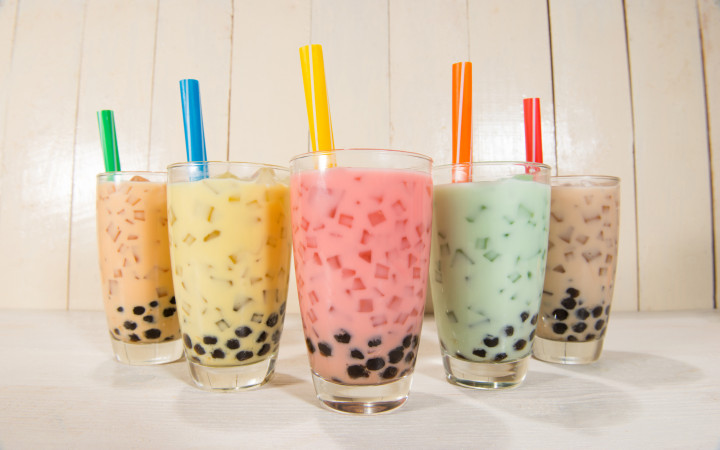Today’s Wonder of the Day was inspired by Ashley. Ashley Wonders, “How is boba made?” Thanks for WONDERing with us, Ashley!
Do you love bubbles? Many kids do! And for good reason. They’re a lot of fun to play with. Of course, people also love to chew on bubble gum. Some even sip a special drink called bubble tea!
Bubble tea is also called boba tea. If you’ve ever seen boba tea, you might think that “bubbles” refers to the little pearls at the bottom. But the bubbles that give the drink its name are those on top of the liquid made by mixing milk and tea. The pearls at the bottom of the tea are bobas.
Have you ever tasted boba tea? It comes in an array of flavors. Do you like green tea? Black tea? Jasmine tea? Maybe you’d prefer a boba tea that’s flavored with lemon, honeydew, or another fruit. They can also taste like coffee or even taro!
Yes, the tea can take on several flavors. But the bobas themselves usually don’t taste like much of anything. They’re made from tapioca—like the pudding! The tapioca pearls are boiled and then stored in sugary water. This gives them a sweet taste and keeps them soft until they land in your boba tea.
Do all bubble teas contain bobas? They’re traditional, but some people prefer other add-ins. Bubble teas can also come with grass jelly, pudding, or aloe vera in the bottom, instead.
Today, people drink boba tea all over the world. It started in Taiwan in the 1980s, and that’s still where it’s most popular. However, shops in the U.S. started making boba tea in the 1990s, where it also gained a strong following.
Is boba tea good for you? That depends. Because there are so many flavors, the sugar content of boba tea can vary. Sugary teas shouldn’t be consumed often. However, boba teas made with green tea often have less sugar. The bobas themselves contain little nutritional value.
In 2012, more health concerns about boba tea arose. A study by German researchers reportedly found a cancer-causing chemical in bobas. However, many people question the results. No other study has found such a chemical in boba pearls.
Have you ever tried boba tea? Would you like to? Many boba teas are very sugary and shouldn’t be consumed regularly. Still, many say they make a great occasional treat!
Standards: CCRA.L.3, CCRA.L.6, CCRA.R.1, CCRA.R.2, CCRA.R.4, CCRA.R.10, CCRA.SL.1, CCRA.SL.2, CCRA.W.2, CCRA.L.1, CCRA.L.2




